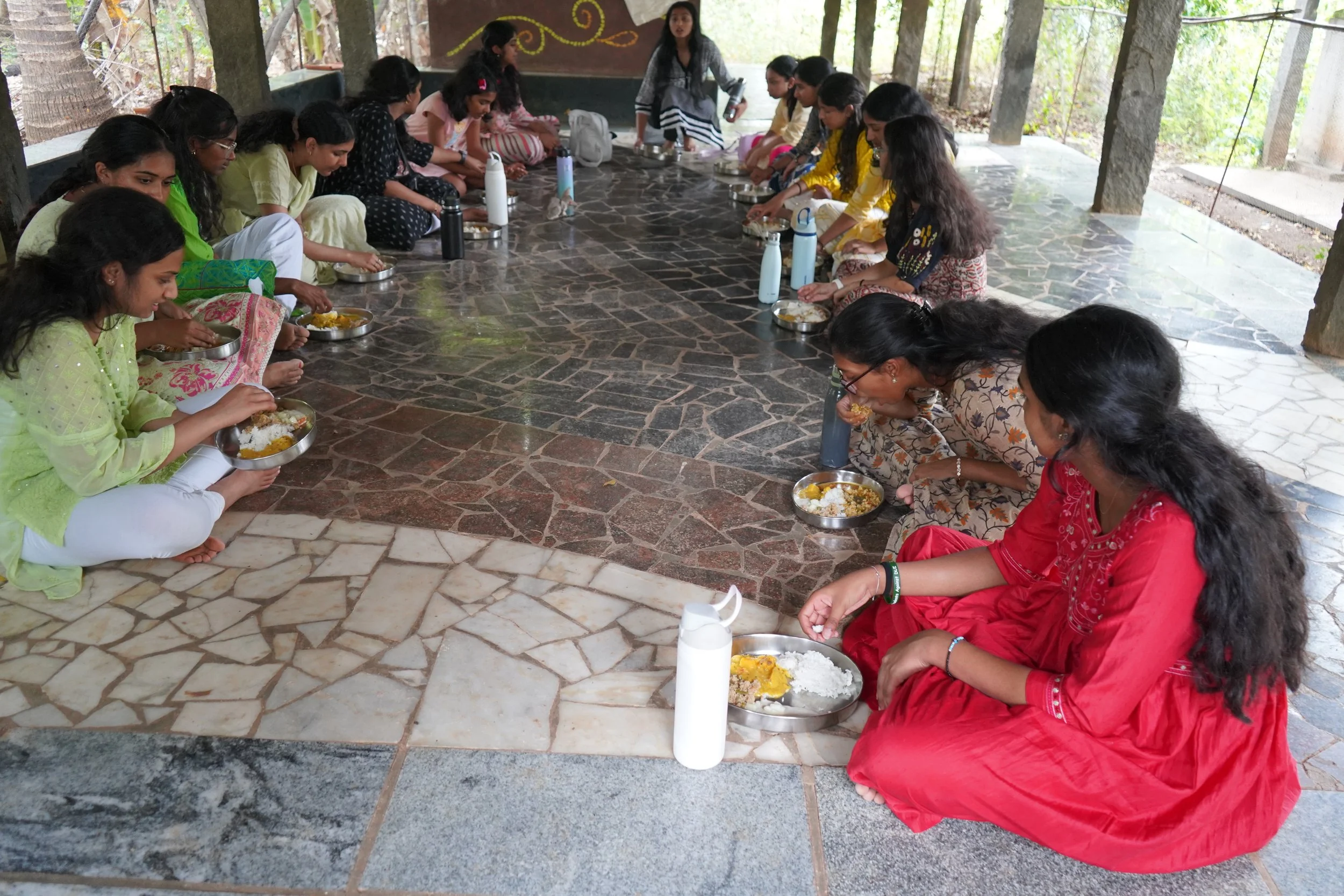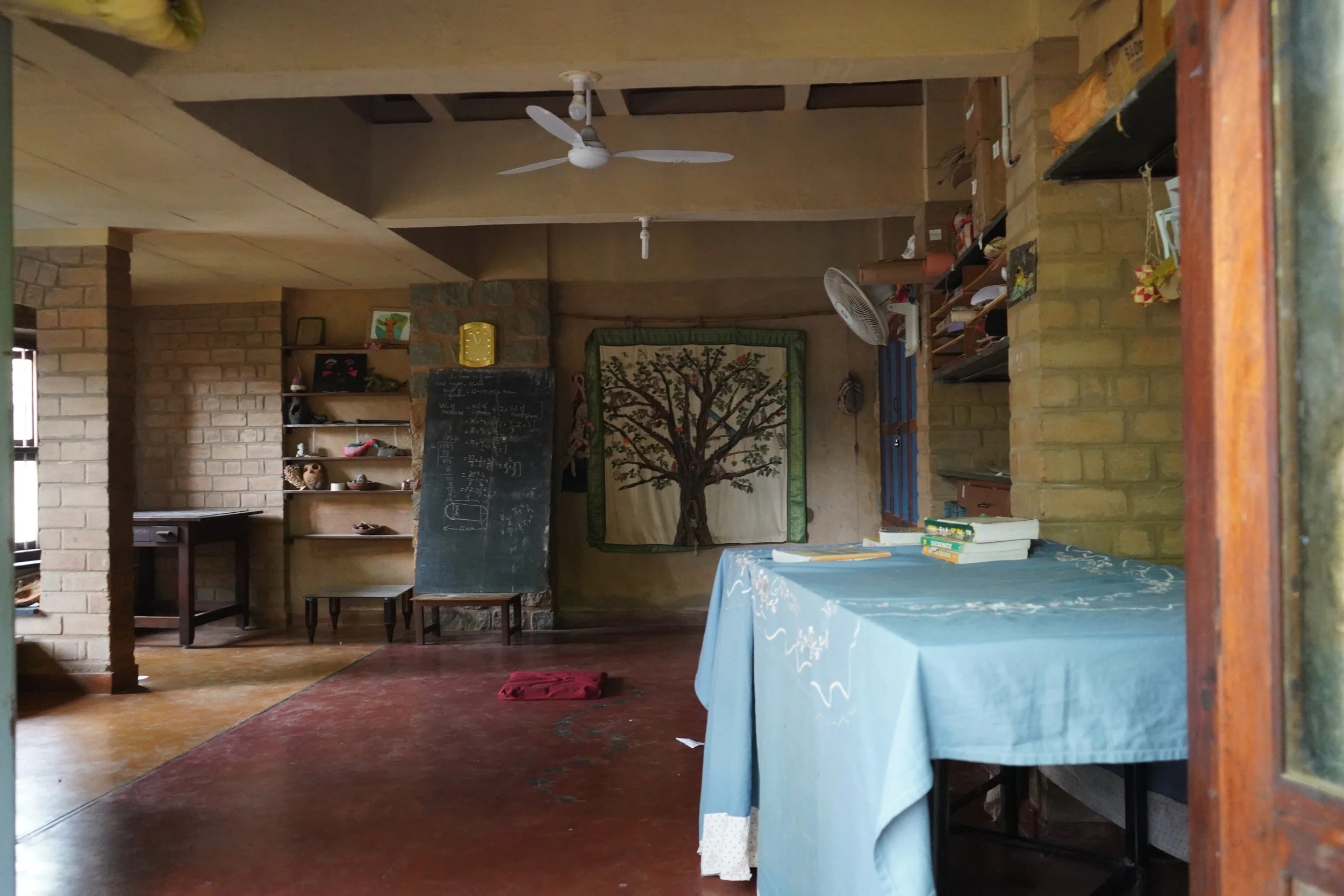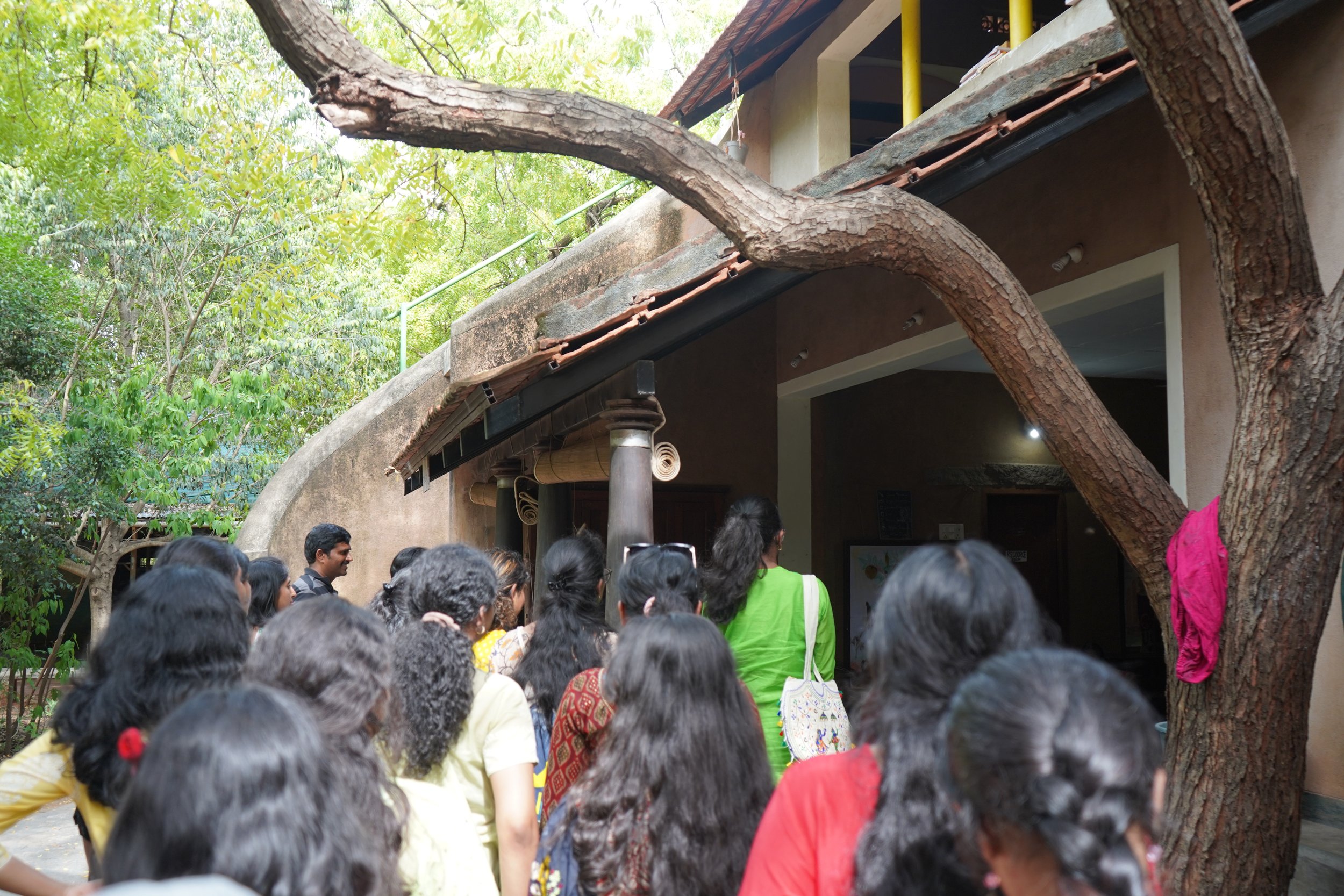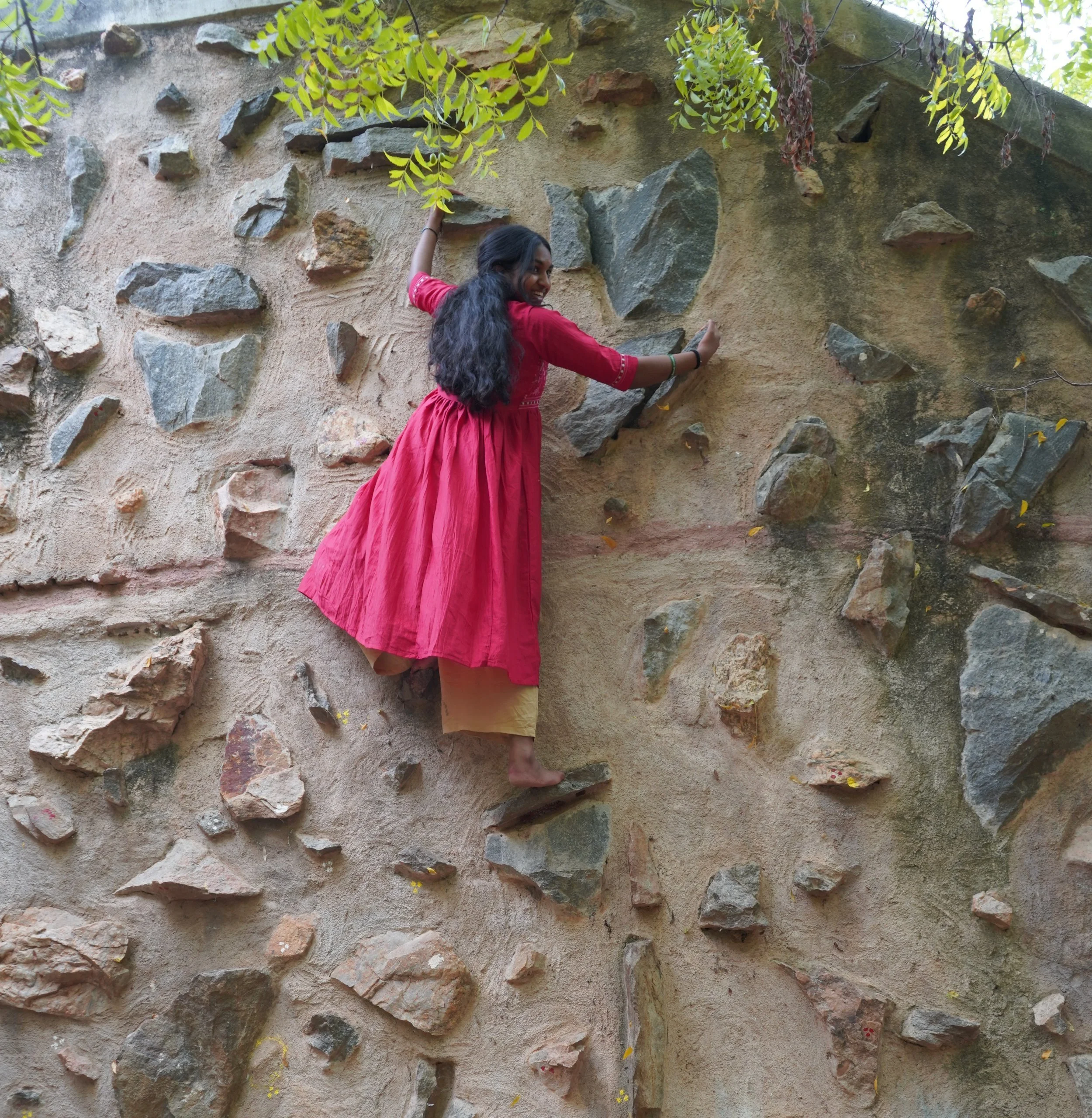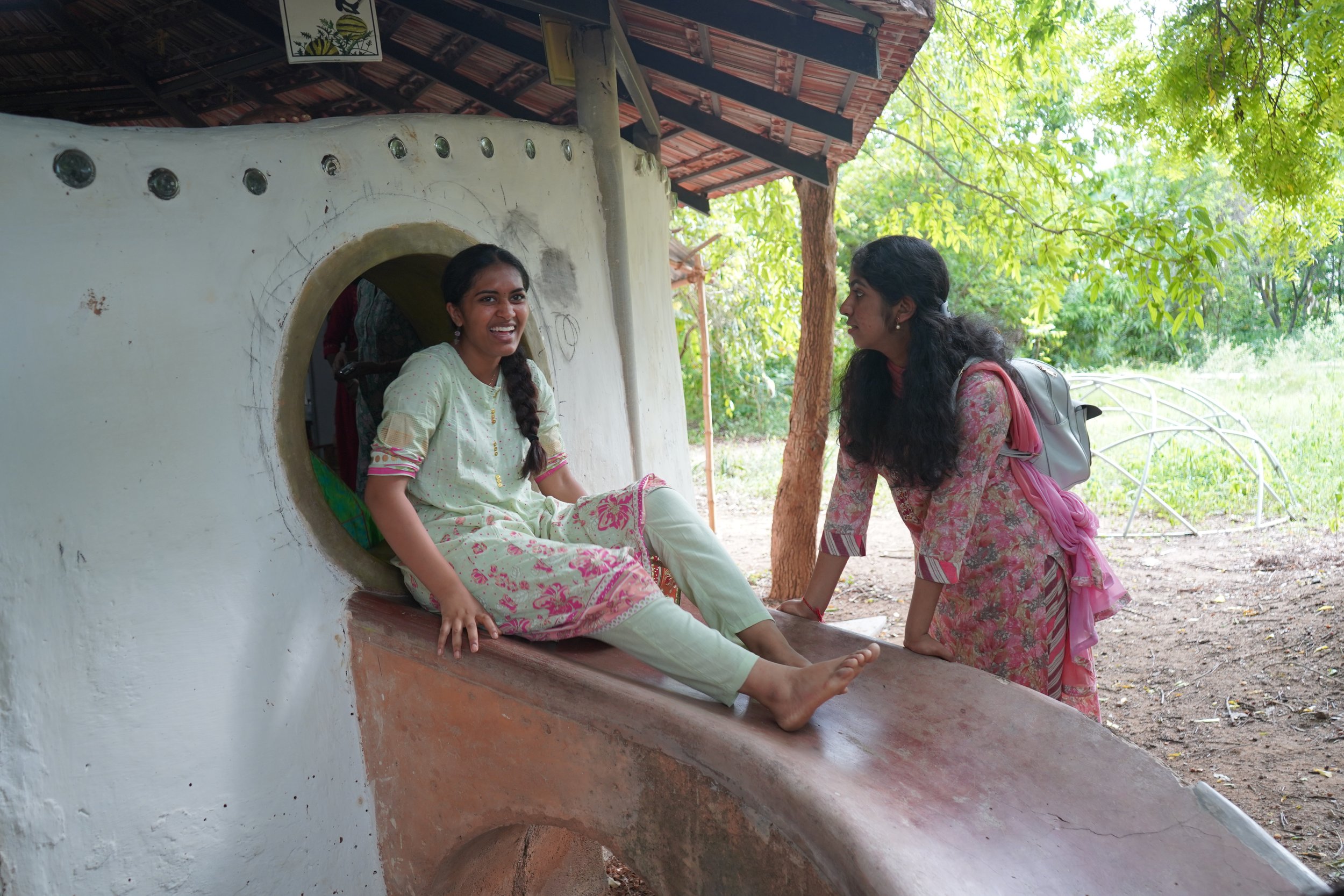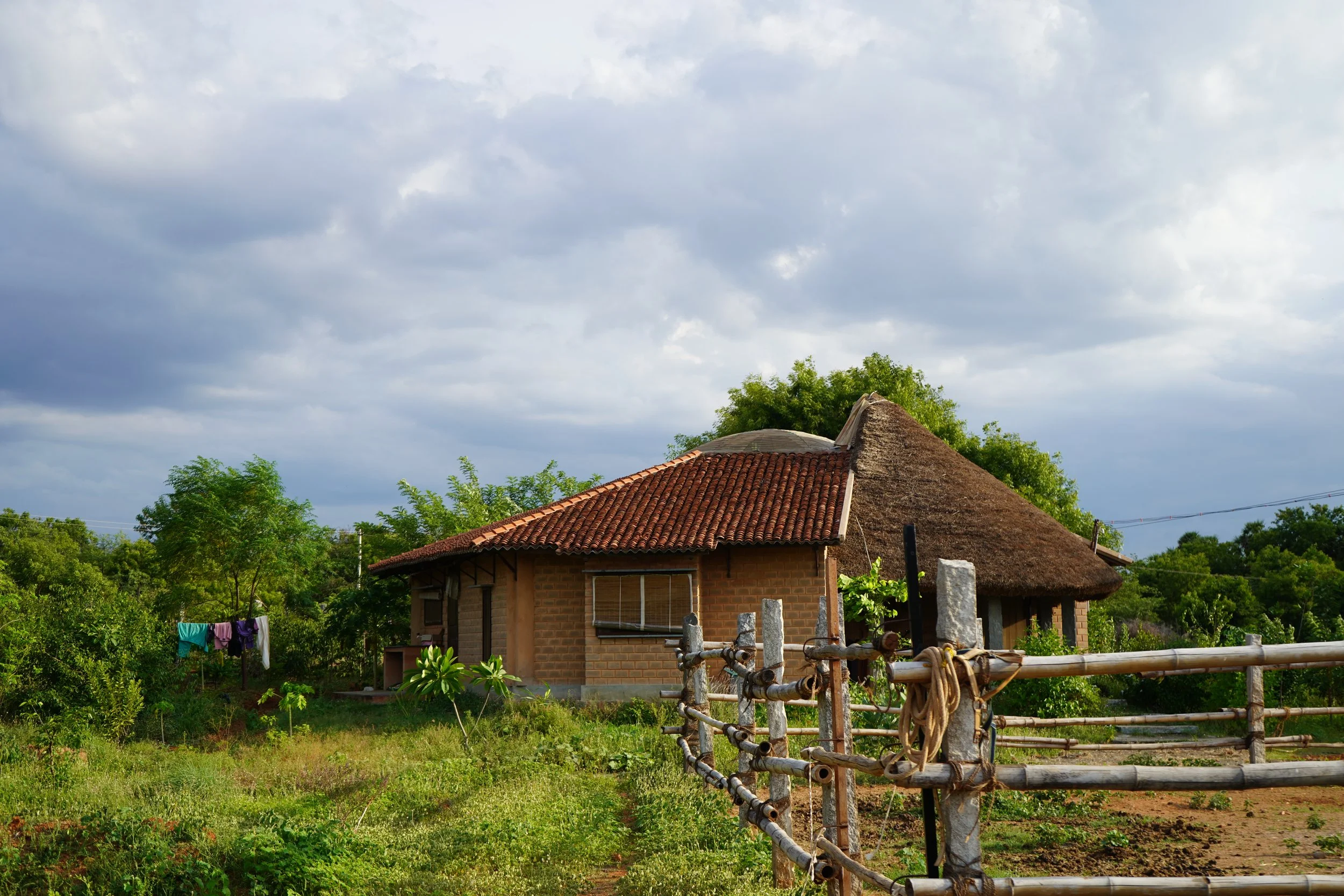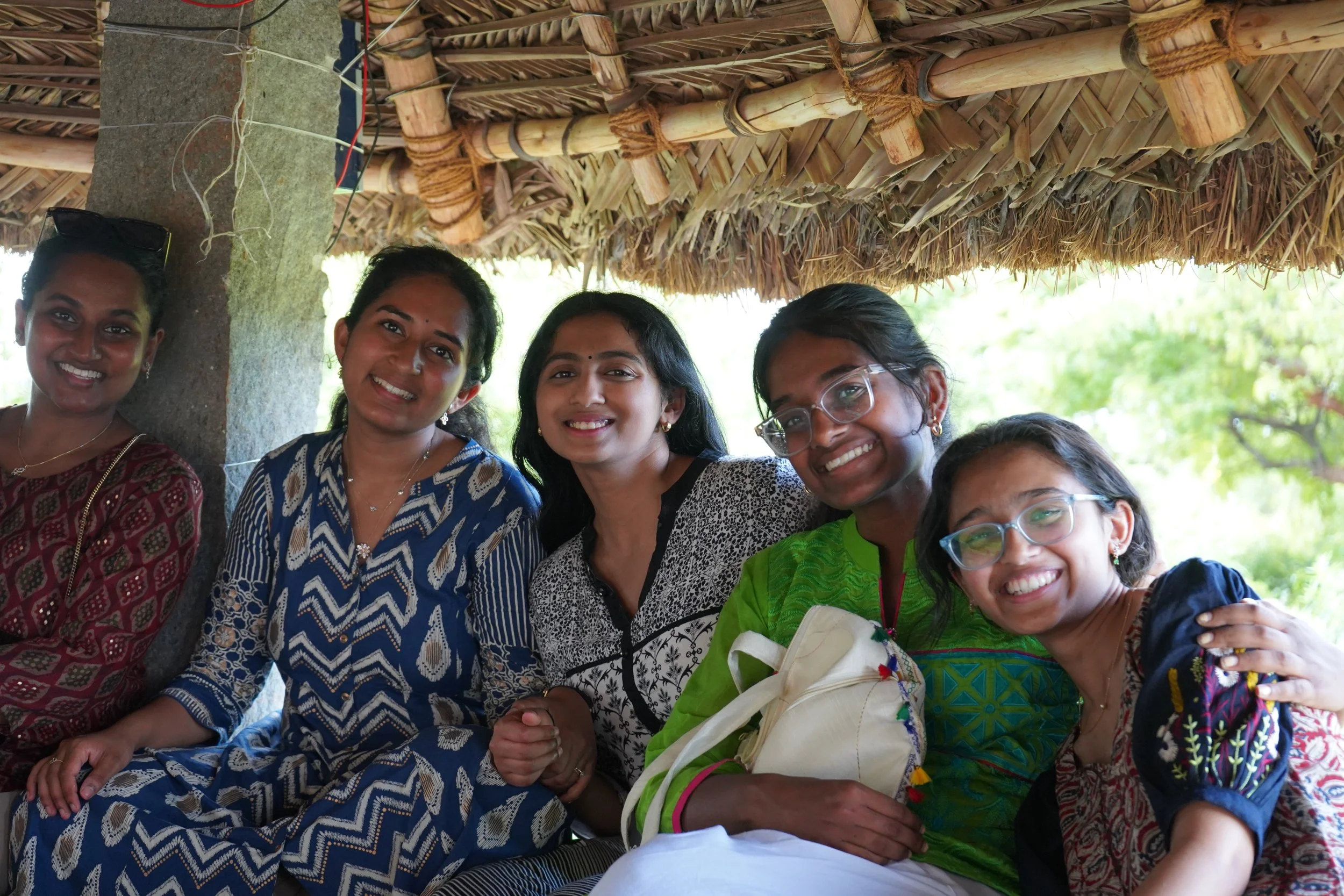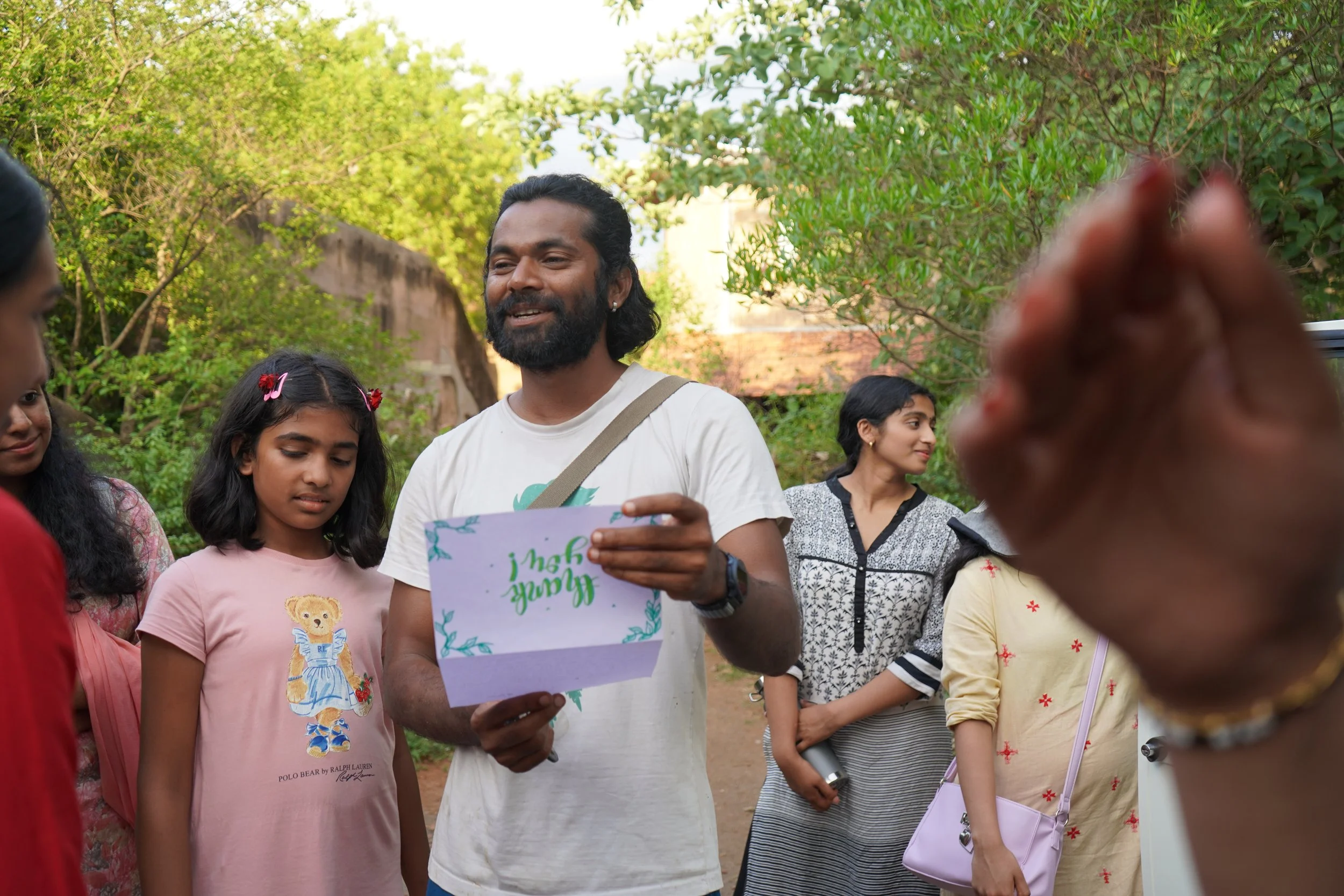A Novel Take on Education
Written by: Anvitha Voruganti
Before we went to visit the Marudam Farm School located in Tiruvannamalai, India, I expected a traditional Indian school or a strict hostel. What I didn’t expect was to fall in love with the alternative approach to learning in Marudam Farm School. When we first arrived at the school we were welcomed with an incredible meal. We ate vegetable biryani, eggplant curry, raita, and more. While we were eating, students were baking banana bread! After we finished eating, we watched their process while trying to speak to them in our broken Tamil. One of the students baking was Telugu so it was easier to communicate with her. We all cleaned our plates like we usually do in Haritachala and we were ready for our tour!
Sitting in school in America, sometimes I pray for class to be over and spend time watching the clock. If I went to Marudam Farm School I don’t think I would have ever ran into that problem. This school is built around a powerful idea that learning isn’t just about textbooks and worksheets. It’s about living. Nana has always told me when he went to school in India it was mainly just memorizing facts. He used to call it “batti kotti chadavadam.” Here, students don’t just memorize facts, they engage with the land, with animals, with art, with food, and with one another. The land itself is treated as an educational resource. Students are given daily responsibilities like sweeping, gardening, and cooking so they are able to learn real life skills.
There were no age-based divisions, students were grouped by ability and understanding. It was a refreshing change from the grade systems most of us are used to. The classrooms were earthy and warm, with wide windows letting in natural light and walls covered in student-made projects. It was a place where creativity and a hands-on learning approach was encouraged. This was something that was somewhat introduced to me in America but the way it was executed at Marudam School was so beautiful. This school was a reminder that education wasn’t confined within four walls. It was apparent how they prioritize students’ freedom to pursue their interests and time spent outside learning about the land. The students at Marudam grow most of the food consumed at the school. During our tour we had time to play on the playground structures that were built. Nostalgia swept through us while we all played on the swings and slides. There were such interesting structures built, along with a rock climbing wall which I had such a fun time climbing!
Walking through the farm, one thing that struck us all was the architecture. The hut-like houses looked like they emerged from nature with rocks embedded into the walls. Even though the trees came after the buildings, it all looked like it had always been there. We had the chance to talk to the person who designed and built the school, and he told us his goal was to make everything feel like part of the natural landscape. He succeeded, the structures looked like they seemed to grow from it. We even got to see the living spaces of one of the teachers. One teacher lived in a charming, hut-like home tucked into the greenery. Vinod Anna kindly offered to give us a closer look. Although we were initially hesitant to step into their space, the aunties inside greeted us with such warmth. They even invited us upstairs to see their cozy loft-style bedroom. We couldn’t help but imagine creating something just as magical back at Haritachala, so we can live in them when we are older.
Towards the end of the day we explored the cow area which was so much fun. Though some of us were scared at first we all learned more about each cow and chose our favorites. The Marudam Farm School gave us a new perspective to learning and so much inspiration for Haritachala. Especially, how we can further imbed sustainable ideas into our farm.

